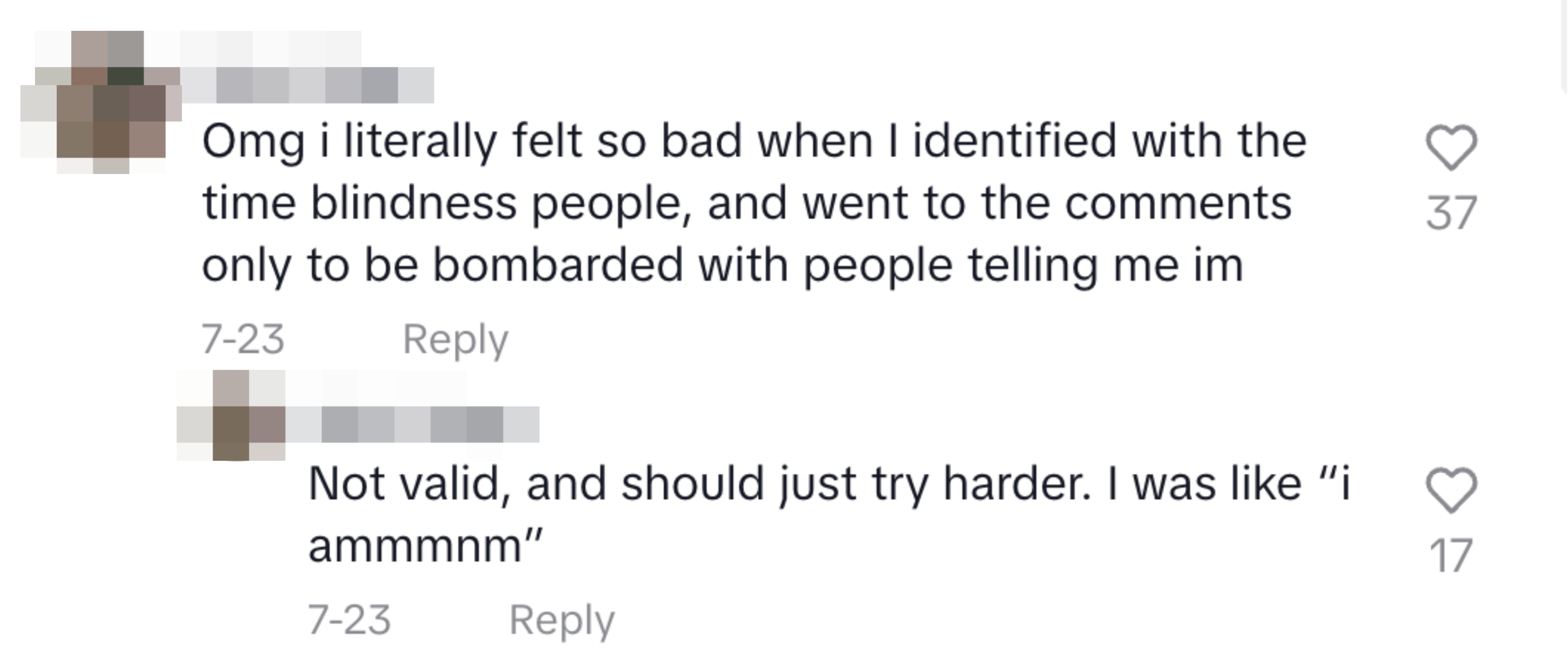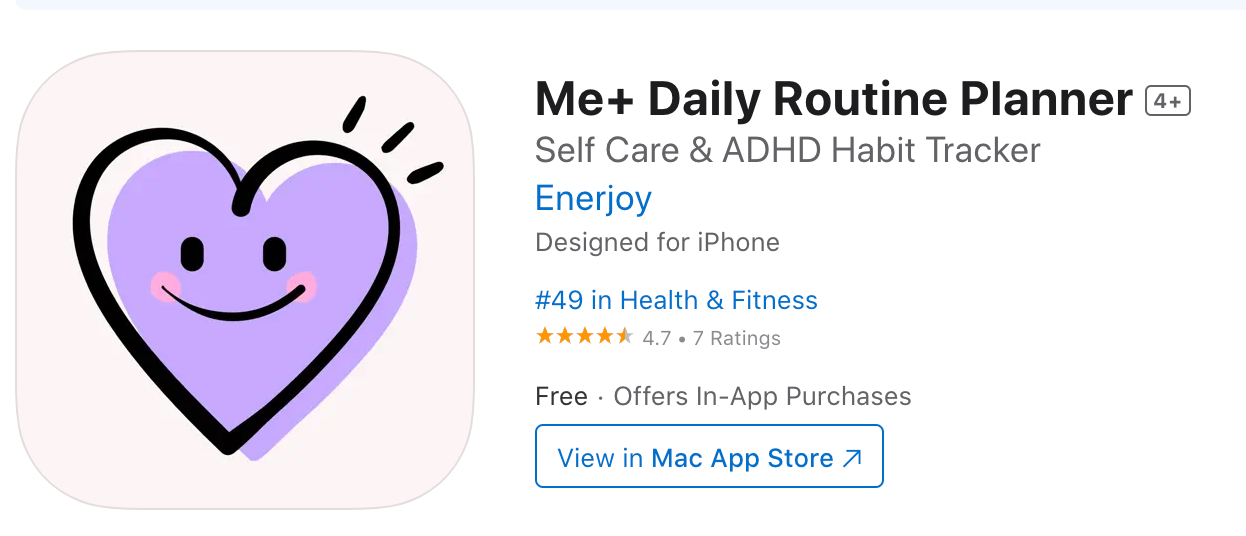I saw a lot of convo around time blindness, ranging from Dr. Grimes to a TikToker sharing their experience with time blindness and asking for accommodations through work, so I wanted to get to the bottom of this topic. I reached out to Jill Grimes, MD, FAAFP (Fellow of the American Academy of Family Physicians) who has been in practice for over 30 years. And also spoke to Simone Saunders, who is a trauma therapist and founder of The Cognitive Corner.

First, let's go over what time blindness is. Dr. Grimes said time blindness is not a diagnosis, it’s a symptom. "Time blindness is simply a description of the inability to either estimate how long a task will take and/or the inability to recognize the passage of time (when you are hyper-focused on something else)," she said.
And Saunders has also talked about how she copes with time blindness herself. "I have noticed that I have two windows of time: now and not now — no in between. So, if I have to do something and it's in the 'not now' period, I have to work extra hard in order to actually pay attention to the fact that time moves between not now and now. So, my girl Alexa (the Amazon device!) reminds me of everything. Otherwise, I will set alarms at different intervals if I need to go somewhere or I will completely deprive myself of dopamine-filled activities when I'm getting ready because if I'm watching Netflix or something — time = gone."

While time blindness is very common in people with ADHD, both professionals agree that everyone occasionally struggles with it. "That’s the whole reason we say 'time flies when you’re having fun!' However, people with ADHD have brains wired not only for easy distraction but also for frequent hyper-focusing that puts their brain kind of on autopilot where they become fully consumed and unaware of the passage of time," Dr. Grimes explained, adding that all people who have time blindness should have systems in place to prevent them from being late.
"Everyone with ADHD knows the necessity of planning ahead and checklists, but implementing strategies can take some serious trial and error. And social media apps are designed to have NO END POINT, so we watch a zillion TikTok videos or YouTube shorts or Instagram stories…and that will make most of us time blind, ADHD or not. I encourage people who struggle with time blindness to reach out to their family physicians, psychiatrists, counselors, coaches, and therapists to find the best combination of strategies that will work for them," added Dr. Grimes.
Saunders agreed with Dr. Grimes, adding, "Time blindness is quite different in that it requires sustained, lifetime prioritization due to the lifelong nature of neurodevelopmental disorders."

Another misconception about time blindness, according to Grimes, is that people with ADHD don’t really have "attention deficit" or distractibility. "People see them hyperfocused on fun things, especially video games. So they say, 'See? He/she can concentrate just fine when they want to!' But, the brains of people with ADHD are truly wired differently, and it is simply NOT just a matter of 'wanting' to focus or 'choosing' to like or dislike a task," Dr. Grimes said.

Dr. Grimes believes one of the best ways to overcome time blindness is to try visual timers for sedentary tasks — and she also said it may be helpful for people to time themselves doing everyday tasks so they have an idea of how long they take.

She also suggests that people with time blindness prepare everything the night before. "From your clothing that you will wear, to any lunch/snacks and work/school necessities — have them by the door, and have a whiteboard checklist that you use just before you walk out the door," she added.

Saunders emphasized that medication* can also be a helpful resource for people with ADHD, combined with coping strategies to mitigate the effects of time blindness. "Coping strategies might look like multiple alarm clocks, creating daily task lists, creating routines, and working on the emotional impacts that may come with any anxiety around time."

